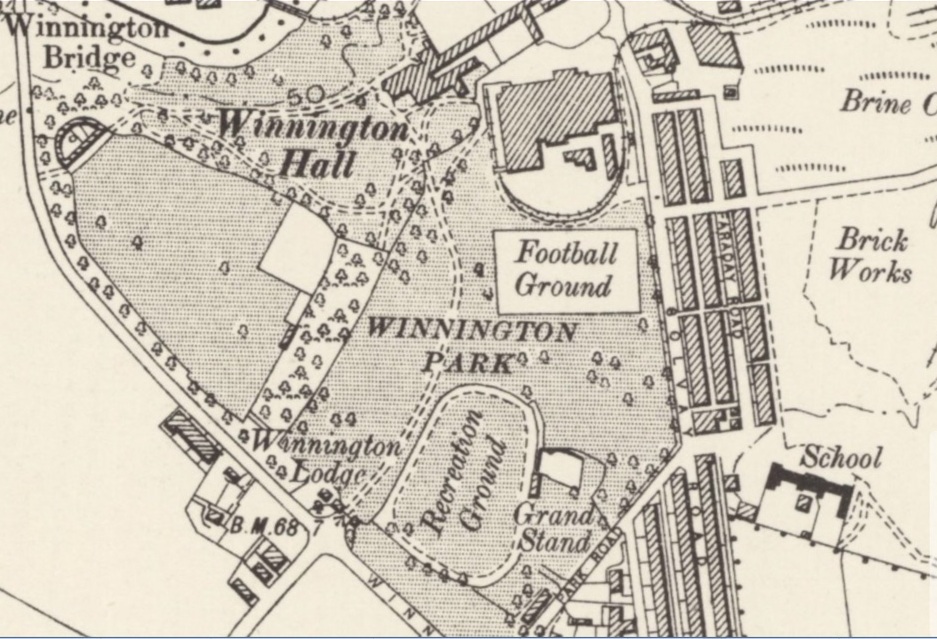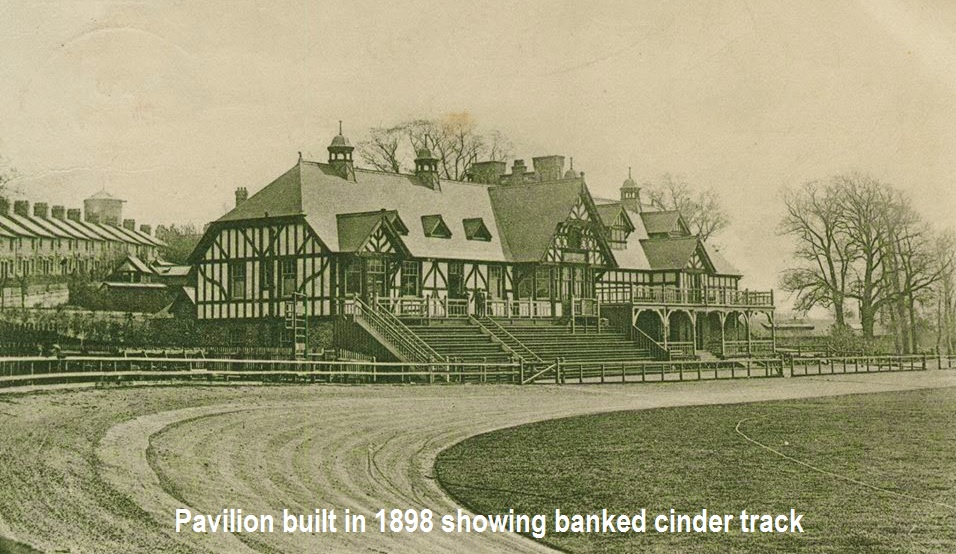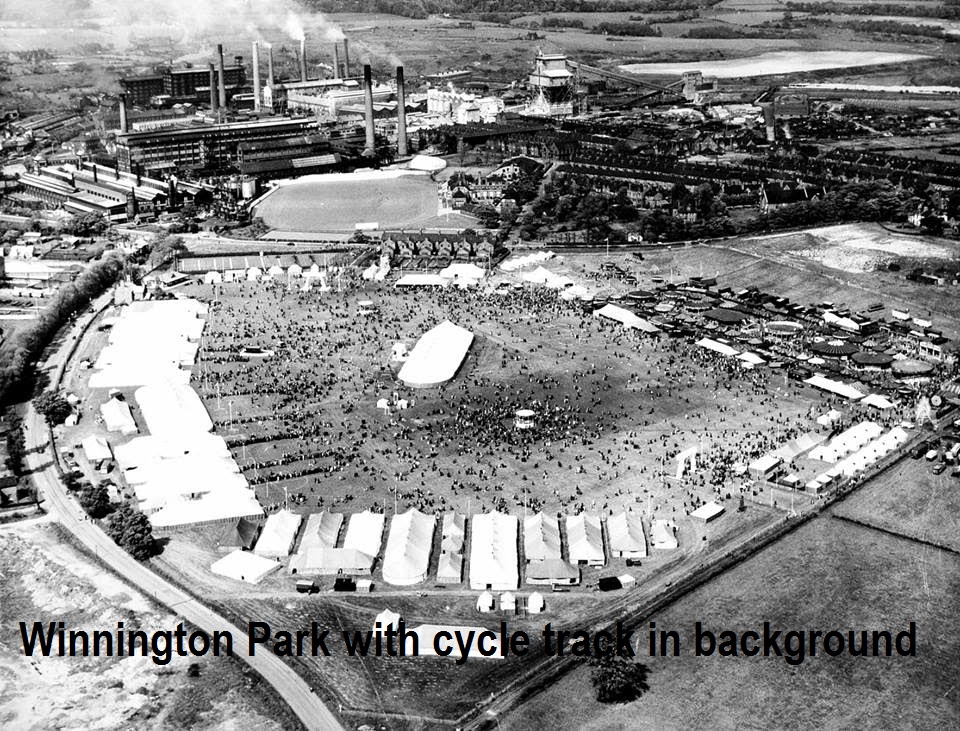


Also on the Winnington site was Winnington Hall and Winnington Park, the parkland was owned by Brunner and Mond, who provided recreational and sporting activities for their workforce. There were facilities for football, cricket, tennis, athletics and bicycle racing. The bicycle racing track was, at first, probably a grass track, then around 1890 a cinder track was laid and in 1901, the cinder track was banked. The track was 3½ laps to the mile.
The first bicycle race at Winnington Park was at the Northwich Floral and Horticultural Society Show on August 18th 1877. The bicycle race included in the event was reported in the Northwich Guardian "A bicycle race of five miles next came off. Only four competitors started and one came to grief before he had gone a quarter of a mile. The other three went along in beautiful style." The flower show continued to include a bicycle race through the 1880's with attendances of around 2,000.
The Nantwich Guardian of June 11th 1881 reported on an event at Winnington Park "The annual treat to the workmen in the employ of Messrs Brunner Mond and Company Limited, took place at Winnington Park on Wednesday afternoon." The attendance was 1,500 and the event included a bicycle handicap race, distance not stated.
The Northwich Annual Athletic festival was first held on July 22nd 1882 in association with a Volunteer fete. The event attracted 5,000 spectators and the sports included 1 and 2 miles bicycle handicap races.
The Winnington Park Recreation Club was established in 1890 and two years later, the Club committee took over the running of the grounds. Cycling magazine reported that the club held their first annual sports on September 24th on the cinder track with ½ and 1 mile handicap races and a 2 miles scratch race. There was also a 1 mile scratch race for local riders and a 1 mile race for employees of Brunner Mond. 4,000 spectators were at the event. The Club continued to hold annual sports meetings until 1905.
The Northwich Victoria FC and Northwich Harriers held a joint sports meeting on September 2nd 1893 which included 1 and 2 miles bicycle races, watched by 3,000 people.
In 1895, Athletic News reported that the track had been re-constructed and was now up to date.
At the Northwich Petty Sessions in 1896, Thomas Morley 63, of Manchester was summoned for betting at Winnington Park. A plain clothed police constable watched bookmakers at the event and saw Morley's name on a discarded betting slip. Morley was fined £10 + costs or 3 months.
In 1901 the track was reported as ‘new' and described as a cinder track, 3½ laps to the mile and banked 5 feet ‘at the ends'. It could be that the track was previously flat and was re-laid with bankings.
The Athletic News of June 17th 1901 reported the ‘opening' of the track "Without formal ceremony, the new track at Winnington Park was in reality opened for the first time on Saturday. The opening event was the 10th Annual Festival sports, with three bicycle races. The 2 miles race had been discontinued because of ‘crawling' and was replaced by a two lap scratch race.
The Winnington Park Recreation Club annual sports continued through the early 1900's but poor attendance at the sports was reported and bicycle racing at Winnington seems to have stopped by 1905.
Winnington Park is still in use and provides social and sports facilities including football, cricket, bowling greens, archery and a fishing pond.
